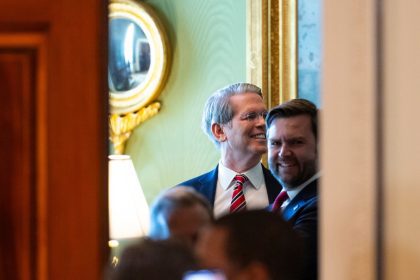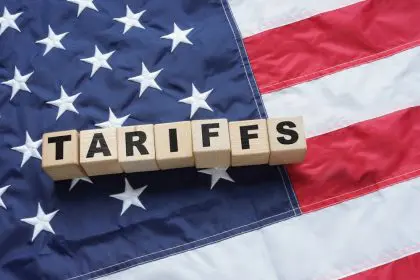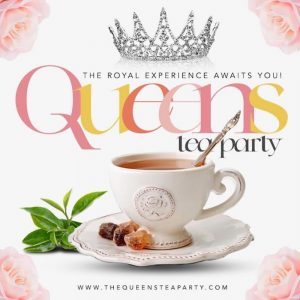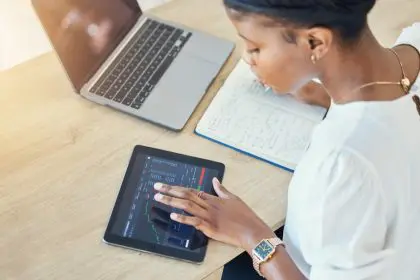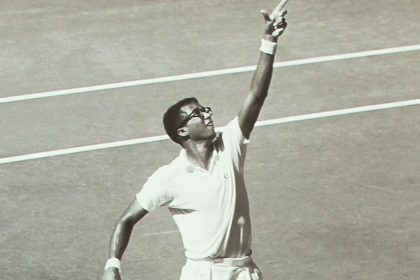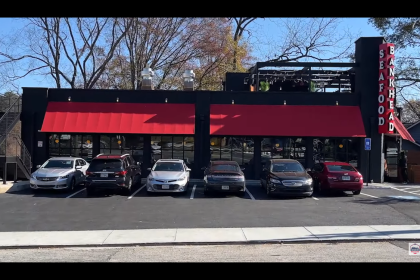
Shaquana Teasley, known as “Shaq” in professional circles, is breaking barriers in the international trade industry. With over 22 years of experience and a unique background that includes an M.Sc. from the University of New Haven, Teasley has established herself as a formidable force in global trade strategy. As the founder and CEO of Agate Solutions, she has specialized in duty savings and recovery with a career savings of over $30 million.
Teasley’s credentials are impressive. She’s a Certified Customs Specialist, an Import Export Agent, a Certified Duty Drawback Specialist, and an active member of several prestigious trade organizations. She also serves on the Board of Directors for both the Organization of Women in International Trade (New York City Chapter) and Troops2Logistics.
Can you tell us about your journey as a global trade strategist?
I have been in this industry for approximately 22 years, and for most people that are in international trade, they have stumbled into this industry. I actually got my formal education in social work because I just had a heart for supporting people in human service.
I relocated from New York City to the Atlanta Metropolitan area and learned quickly that would not be the career for me. I took a temporary position through a contracting office at a trucking company at the front desk. I was very fortunate that a gentleman offered me a position in the back of the terminal, doing export documents because the trucking company was also a freight forwarder, and they were forwarding goods to only the Caribbean.
He brought me to the back of the terminal, where he began to teach me the regulations that were distinct to custom policies, to be able to export goods outside of the country. I tell people all the time, do not discard the importance of documentation, because every field on the document teaches you something else.
I was a temporary employee, I worked there for over a year, and they were acquired by a larger company. I didn’t even know what to call myself in this industry. But I had already made a name for myself, and I began to be able to take my pick at the opportunities available to me. I went into chemicals, I went to Home Depot for home goods. I worked at Mizuno, and my last formal job, before I started Agate Solutions, was at Lockheed Martin managing the international trade globally for the Department of Defense systems.
My goal for international trade currently is to ensure that people have what I call the Shaq breakdown. I think that policies and regulations are overly complex. People hear these very long words, and they don’t know how to apply it to the actual day to day operations of their supply chain. What we do is very unique. We take the complexities of international trade, customs regulations and supply chain operations, and we break that down to give a solid solution to the complexities of these different attributes that make things extremely difficult to get our goods and services moved around the world.
Can you break down what a tariff is and what are some misconceptions about tariffs?
I think that people have been seeing a rise in cost even before the new administration came into office. People have somehow associated all of that with the importation of goods. People even say that eggs are extremely expensive because of tariffs. We’re not importing eggs, it’s from your local farms predominantly, so that something as simple as that can really make someone make bad decisions in business and as a consumer in their day to day spending.
A tariff itself is also referred to as duty. Many people are very familiar with using the word duty just from vacationing to Jamaica and buying souvenirs on their way back home and going into duty free places. But now we’re talking about tariffs, and the tariffs people see that more in the business aspect, because there are larger volumes being imported and exported around the world.
A tariff is a duty or tax that is associated with an actual good that is being imported around the world, but I would like to break that down into more simplistic terms. Every time things are imported into the United States they have to be assigned something called a harmonized tariff number, also referred to as a harmonized tariff schedule or harmonized code. It’s called harmonized, because up to the 6 digits, that number is actually harmonized throughout several countries around the entire world.
That equates to a huge book of every commodity that you can think of. Dogs, cats, textiles, apparel, car parts, aerospace products, earrings, hair, milk, anything you can think of, has to have this coding system. The coding system itself is complicated to determine that your goods have the right code. But once you’re past that, that code now tells you the percentage of the tariff that is assigned to that product.
Where people get really confused is that they think when they hear 50% tariff, 100% tariff, that that automatically means a new price for everything. A lot of the time, these tariffs are distinct to commodities and distinct to countries, and it does not always apply to every single product. Also, the percentage is based on the value of the product.
The duty is assessed on the material that is going to be valued in the country where it originates. If my jacket came from China, and the value of this jacket was $30. Now think about that in a huge 20 foot container that could be valued at maybe a million dollars. That value is on that percentage.
However, I think, where people are confused is the commodity, the country of origin, and the routing, and all the other things that can be taken into consideration. Trade agreements. Some countries have trade agreements with the United States that may not be as impacted.
It’s putting fear in where consumers want to spend their money, but for businesses this is the time to strategize, because customs has many programs that allow you to actually get duty refunds, mitigate your duties, or defer them.
Is that just for small businesses or big businesses?
It’s for any importing exporting business.
What inspired you to create your educational platform and the event that you have coming up around tariffs and trade strategy?
I’ve been in trade for about 22 years. Like I said before, it was something that found me, I didn’t find it. And being the only Shaquana, it has had its challenges at every company I’ve ever worked.
I was very fortunate to work with some of the largest companies that had the best supply chain solutions, and to work with some of the best law firms and consulting agencies, to learn how to make international trade revenue generating.
When I started Agate Solutions, I began first with education because it was so expensive that I found it difficult to be educated in trade, but fortunate enough to work for jobs that offered this as a benefit package. So literally for $199 I started teaching 6 week courses, to teach people an end to end solution of how goods move around the world, and how tariffs are assessed. That blew up quickly into an accreditation, we built in a curriculum, and had it accredited to offer a micro accreditation which is now known as the Certified Global Trade Specialist.
The event that we have coming up is called ‘MayDay,’ and it’s called ‘MayDay’ intentionally. We’ve had this event for several years, but this year is very fitting. Because the industry is in distress and a signal needs to go out, and the signal needs to go out to, not just the people that are challenged, but to the experts, and holding them accountable for their responsibilities to educate, direct, lead, mentor, and provide a solution and not just a complaint forum.
What are the event details?
The event is ‘Mayday Trade Summit.’ It’s in Atlanta, Georgia, on May 31st, it begins at 4 o’clock. We’re also having a VIP section for people that actually want to sit with business owners and people that are in state positions as well that might want to understand different opportunities for themselves. But the point of the event is to offer a solution based summit. People will walk out of there with some basic things that they can change in their organization immediately, to help them either defer duties, mitigate duties, or be in a position to get their duties back in a refund.
Who should attend this event?
This event is actually wide range. Usually, when I have it, I target importers and exporters and my students, of course. This time I think that it’s crucial that people think outside the box. So I think this event is good for people that are in purchasing, sourcing, warehousing importers, exporters, people that are global business leaders or individual contributors. I think students can benefit greatly if they’re looking for internships this summer as well as, there’ll be a lot of businesses there. Ultimately, I think, the key audience for this is people that need to find a solution, to be able to import and export their goods and increase their profit margins at the same time.
What do you see as common missteps that people in business make who don’t have the benefit of this education?
I think that we live in a society where people think that Youtube University is an accreditation. I think we also live in a society where people have created the terminology of Googleable, and there’s somehow standing firm on that like it’s equivalent to an MBA. And I think that’s a huge mistake, because there is an interpretation of regulations, there’s an interpretation of policy, and it is not simplistic.
People are using other companies’ benchmarks, and they’re using tools like Google and Youtube. And they’re trying to individually create their own strategy to keep their business alive during challenging times, and no one would ever do that with their taxes, and no one would ever do that with their attorneys, but they somehow think I could figure this out.
Importing and exporting is just like your driver’s license, it is a privilege and not a right, and it can be taken from you at any time. The complexities around this can really put people in a position where they don’t know what they’re doing, and guess what? Customs can seize your product, you can lose your import or export license. They can auction your goods at a customs auction, and now your intellectual property is in jeopardy.
Then you have fines and penalties that is tiered by negligence, gross negligence, and fraud, and they would be times the amount of how much your value and or duty can potentially be. And just like that, you were trying to save money by doing it yourself, and now you no longer have a business at all, and that’s public information. So just like that, trying to cut corners can put your entire business in jeopardy. So it’s just not worth it.
Would you count having this trade intelligence as a part of business training, something that people should have in their business toolkit?
I was an educator last year for the Department of Commerce. I was teaching their export program to help businesses export their goods to global markets. And the stories I was hearing from these businesses is that they were making hair products or beauty products, paint, right here in the US, and only marketing it domestically.
And then someone gets wind of this great product and they want it in another country and guess what they want way more volume, and just like that, your business can pivot to multiple currencies. We all want to be able to have a diversified portfolio. Right? And they weren’t ready. By the time they were ready, time kills all deals, I think we all would agree with that.
So yes, I would agree, you need to be prepared. We always hear you need to be ready, so you don’t have to get ready. That’s real talk. But also I don’t think that people can be informed in business if they don’t understand the basics to the global economy, that includes voters, that includes students. We cannot make informed decisions if we don’t understand just the basics to how the global economy works, how economy works. And I’m not saying, Be an economist. But if you want to understand revenue flow from a global perspective, it would be to your benefit to understand the economic growth surrounded by that, and understanding both import and export.
You’ve built a business in a high barrier industry where there are not a lot of folks who look like you. Can you talk about pathways for those who might be interested in pursuing this field?
I am a huge component of education. I always believed that knowledge is power, it’s not just a hashtag. If I did not have the skill set I had, I would not be welcomed in the places that I am, where they lack women or people that look like me, or have names like me, but I bring value to the rooms that I’m in, in spaces that people just can’t find that talent.
Now what I will say is the people that take my courses, I do do some mentoring, not much, but I do do some mentoring, and I bring them with me to conferences, and we get our own table. So now you don’t feel like the person in the back of the room, I don’t know if they’re going to like me, I’m near the bathroom, what do I say? What’s the right terminology? Because I’m walking you right up and introducing you.
So I would say, education first. Mentorship is key, sponsorship is very much key, and I tell people all the time, a mentor and a sponsor is not the same. The sponsor is the one that’s just going to put you right through. Because you ready. So education, first, mentorship and sponsorship.
And lastly, people say relationships matter, and it sounds so cliché, and I would be very honest that everyone’s not going to like you. I’m from Brooklyn, New York, it has its own culture. It’s not American culture, it just has its own culture, and for some people it’s too much, it’s too direct. It’s a little extra, but it’s just really who I am. But I bring value to the relationship, and that’s what makes the difference. So when people tell me relationships matter, I take that one step further beyond the relationship. I say the value add to the relationship because people think relationships matter means he got to like me, no, you just might not like me. You’re not going to find nobody better at what I do, but that relationship, that status of the relationship now becomes what predominates the relationship.
What are the three things attendees will come away with from your event?
So again, the event is on May 31st, it’s called the Mayday Trade Summit. You can get the link for the event on my website at agatesolutionsusa.com. Just click on events. People that come to the event will walk away with these top 5 things.
You will walk away with the basic solutions to help you understand the strategies to get through this time in tariffs, not just survive, but strategies to thrive in tariffs. So if you’re looking for strategies to understand, what do I do first? How do I change my documents? What do I do? You will get that.
There’s some people that are solely interested in a global network because they’re interested in getting into a global business space. You will get that there. You will get that through the panelists you will get that through the room, because the people in the room are generally importing, exporting, and doing business throughout the world, not just one particular region.
You will definitely get education because I’m education first, so I will be doing some education there myself. I will teach a class there as well.
You will get to meet government officials, state officials as well. That can tell you about resources available to you as well.
And then, lastly, I’m all for good food, folks and fun, so we will have food there, so you’ll be able to eat as well, and of course beverages as well. But I think overall people need a morale pickup. I’m serious, and that can’t always come from the turn up. Sometimes the morale kick up is that you have a solution. So overall, the Agate Trade Summit will be a solution based forum to take the edge off the complexities of where you think you have no out. But you don’t just have an out, you actually have strategies to compete and win globally.

